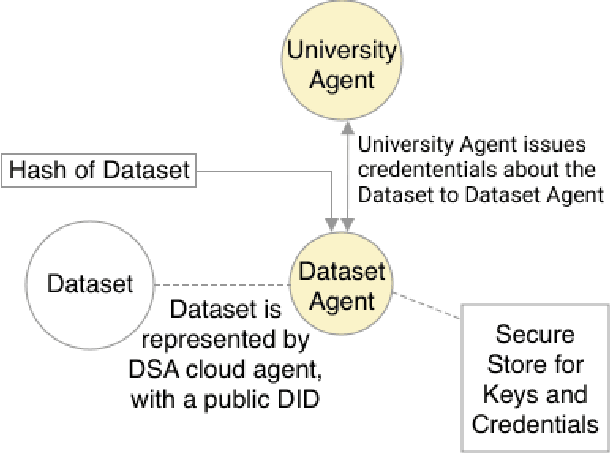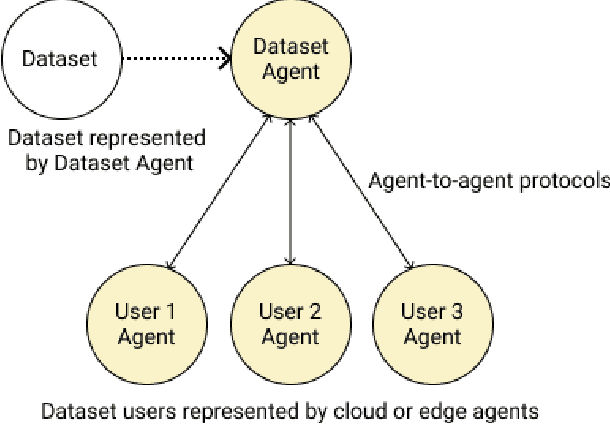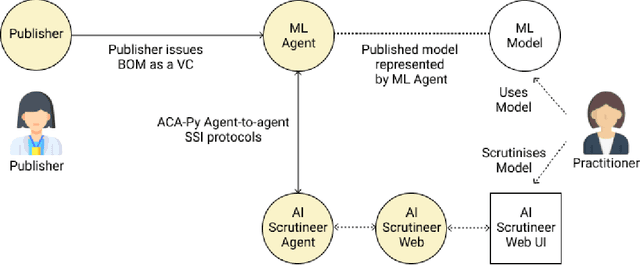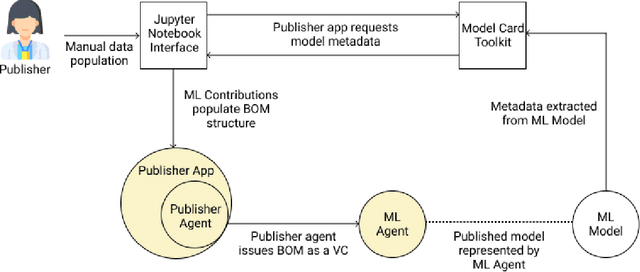Providing Assurance and Scrutability on Shared Data and Machine Learning Models with Verifiable Credentials
Paper and Code
May 13, 2021



Adopting shared data resources requires scientists to place trust in the originators of the data. When shared data is later used in the development of artificial intelligence (AI) systems or machine learning (ML) models, the trust lineage extends to the users of the system, typically practitioners in fields such as healthcare and finance. Practitioners rely on AI developers to have used relevant, trustworthy data, but may have limited insight and recourse. This paper introduces a software architecture and implementation of a system based on design patterns from the field of self-sovereign identity. Scientists can issue signed credentials attesting to qualities of their data resources. Data contributions to ML models are recorded in a bill of materials (BOM), which is stored with the model as a verifiable credential. The BOM provides a traceable record of the supply chain for an AI system, which facilitates on-going scrutiny of the qualities of the contributing components. The verified BOM, and its linkage to certified data qualities, is used in the AI Scrutineer, a web-based tool designed to offer practitioners insight into ML model constituents and highlight any problems with adopted datasets, should they be found to have biased data or be otherwise discredited.
 Add to Chrome
Add to Chrome Add to Firefox
Add to Firefox Add to Edge
Add to Edge